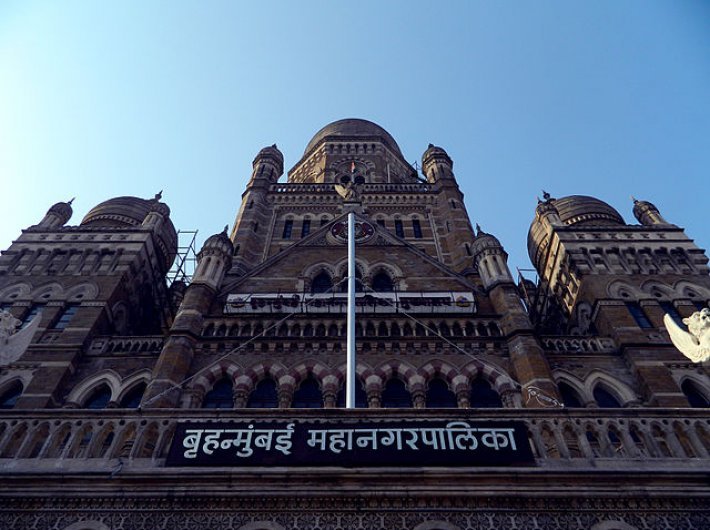Call for realistic election expenditure as voting for India’s richest civic body takes place on Tuesday.
Demonetisation was a factor as candidates in the fray for the Mumbai civic polls wooed people. Though the election commission doubled the expenditure limits from Rs 5 lakh to Rs 10 lakh, some candidates found the going hard as there was a weekly withdrawal limit of Rs 24,000.
Rs 10 lakh is way above the actual required election expenditure, says former citizen candidate for BMC, Adolph D Souza. “When I stood… it came from the people or better called crowd funding for which receipts were also issued.”
He says that major poll expenses go towards printing and paying the ‘karyakartas’ (party workers).
Recalling her own election campaign 20 years back, former Mumbai mayor, Nirmala Sawant Prabhavalkar says she could complete the entire campaign between Rs 38,000 to 40,000.
“At that time the guidelines of election code of conduct did not apply to us. The party had only provided us with funds of Rs 10,000 with two installment of Rs 5,000 each. The second installment was to constitute the election campaign machinery like photo copies of papers, distribution of voters list, sending ballot cards to voters, booth material and supplies and some expenses for the candidate. Banners were not much in use and cotton banners printed on both sides were used. Only 20 banners were put up in the entire area. Expenses were less and even this amount was sufficient for me.”
She however feels that the cash withdrawal limit of Rs 24,000 from banks has definitely led to a subdued campaign as a candidate has to meet expenses.
A BSES official on electoral duty on condition of anonymity said that due to cap in cash limit withdrawal of Rs 24,000 per week from banks, candidates took loans for poll campaigns. For instance, expenses incurred on tea and snacks, cheque payments are not possible. Those candidates from big parties take credit and make payments later. It is the smaller parties and independent candidates who found it difficult.
BMC has published a rate list of propaganda material from a pin to banners to sound systems and money required to pay BMC rents and permissions for holding rallies as well as conducting meetings and putting up banners.
Political analyst Prakash Bal Joshi too says that due to demonetization money has gone back to the banks and for that reason very few candidates have hard cash on hand so they have been finding ways to deal with that.
However state election commissioner, J S Saharia, says, “Nothing has come to my notice on difficulties due to demonetization. The RBI tells me there is no problem as far as current account is concerned and has allowed transactions through cheque. I have no mechanism to check if there are difficulties on that front.”
Neela Satyanarayan, former first woman election commissioner of Maharashtra, came down heavily on political parties putting up hoardings and banners across city despite court order. She says, “Despite court order on hoardings, you see them all over the city. No one follows court orders.” Joshi adds that though noise rules contributed to a subdued campaign in some parts of the city, but in slums vehicles with loudspeakers and banners were used for campaigning.
Adds D Souza,“Anyone who knows a little bit about politics knows demonetization is a humbug. To avoid disqualification, there is under reporting of election expenditure. The corrupt will find means and ways of spending more than what is allowed by election commission.”
He says, “I have been told that candidates have paid as much as Rs 50 lakh to get ticket from a party. We had said that anyone who has been charge sheeted should not be allowed to stand for elections. Is any party agreeing to this minimum requirement ? Nobody is. That shows where the will is .They may say demonetization was reigned in because of corruption. Are they serious about corruption? And that is why the idea of citizen’s candidate - of the people, by the people, for the people came about.”
Prabhavalkar says, “Elections have become commercial. There are no takers for poor candidates and rich candidates come with inflated prices. Elections are a market place with manipulations.”
“Despite the usual colour missing in campaigning this time, it is good in a sense. There are good candidates who can be elected without spending much.”

